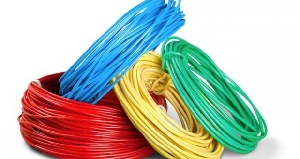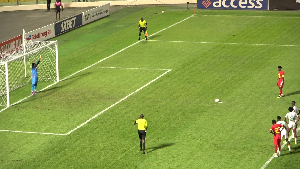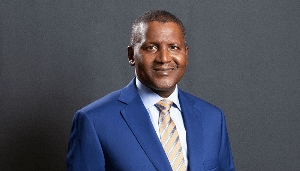The Energy Commission of Ghana has engaged industry players on the implementation of the Electrical Wiring Cables and Electrical Wiring Accessories Regulations, 2023 (LI 2478).
The meeting, held in Accra, brought together key players, including importers, manufacturers, contractors and regulatory bodies, to finalise guidelines for the enforcement of the regulations.
The LI 2478 was passed by Parliament in 2023, aiming to regulate the importation and manufacturing of electrical wiring materials in the country. LI 2478 builds on the existing Electrical Wiring Regulations (LI 2008), passed in 2011 – which only covered the use of approved materials by certified electricians but failed to regulate the production and importation of these materials.
To this end, the LI 2478 seeks to close the loophole, ensuring that only materials that meet the standards of the Ghana Standards Authority (GSA) are sold in the market, mitigating potential hazards such as electrical fires, shocks and equipment failures.
This becomes necessary as the country has a high electricity access rate of over 80 percent and many citizens risk being exposed to electrical risks due to substandard wiring materials.
Guidelines
Assistant Manager, Electrical Wiring Secretariat at Energy Commission, Stephen Yomoh, in an interview at the stakeholder meeting explained that the guidelines underway will introduce a comprehensive framework for the registration of importers and manufacturers, as well as the issuance of certificates of conformance.
These certificates will serve as proof that the wiring materials supplied by vendors meet the safety standards of the GSA.
He also noted the commission’s plan to use mobile test vans – specialised vans that will allow inspectors to perform on-site tests of electrical cables and accessories at marketplaces, reducing resistance from suppliers.
“The mobile vans will make enforcement much easier because suppliers can witness the tests in real-time and understand why their materials either meet or fail to meet the standards,” he explained.
He added that with sensitisation efforts beginning immediately and a pilot phase scheduled for January 2025, full nationwide enforcement is expected by June 2025.
Responding to how the regulations will address counterfeit or substandard products entering the country through unapproved routes, he noted that while it may be difficult to monitor all entry points, the commission’s market surveillance efforts would help identify such products on store shelves.
“Even if these products enter the country illegally, they will eventually find their way to the market, where we will test them. Those that fail to meet standards will be removed from the market and either destroyed or re-exported,” he added.
Sanctions
Sanctions for non-compliance have also been outlined in the guidelines, and penalties will include the removal of non-compliant products from shelves, re-exportation or destruction. Unlike the previous law, LI 2478 introduces both minimum and maximum penalty units to ensure that offenders are adequately punished, serving as a deterrent to potential violators.
President of the Ghana Electrical Contractors Association (GECA), Awal Sakib Mohammed, expressed confidence in the Energy Commission’s ability to implement the regulations effectively and urged the public to be vigilant, as substandard products pose serious risks to life and property.
General Secretary of the Ghana Union of Traders Association (GUTA), Alpha A. Shaban, echoed similar sentiments, stressing the collective responsibility of all stakeholders to ensure the success of the regulations.
“We all have a role to play in disseminating this information. The media, contractors and traders must work together to educate the public. Only then will enforcement be effective,” he said.
Business News of Wednesday, 18 September 2024
Source: thebftonline.com







![Alan Kyerematen [left] and Ex-President Kufuor Alan Kyerematen [left] and Ex-President Kufuor](https://cdn.ghanaweb.com/imagelib/pics/267/26772228.295.jpg)









